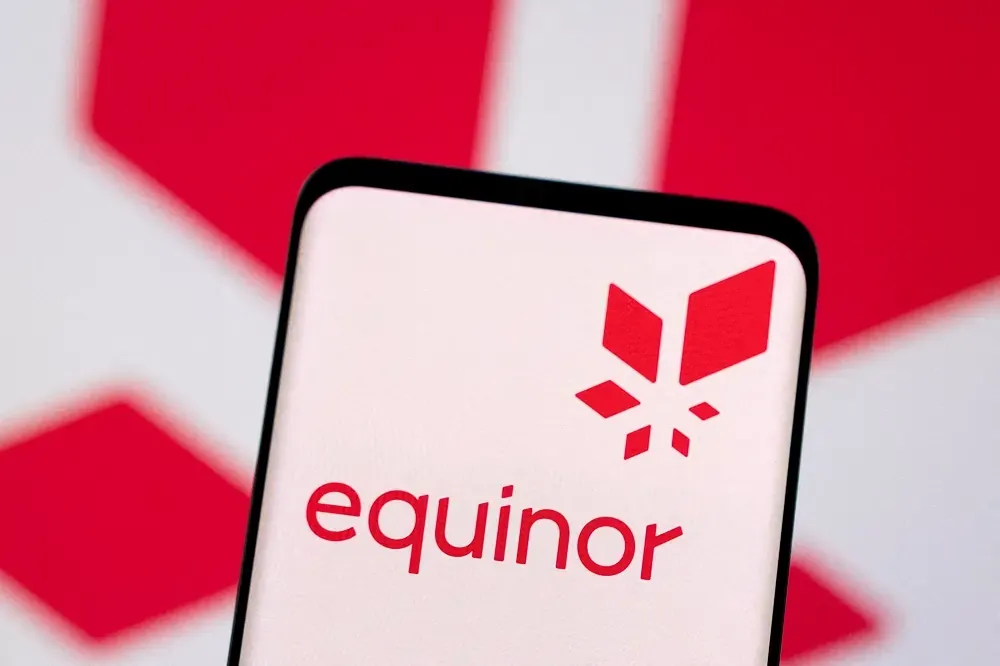
By Nerijus Adomaitis and Nora Buli
LONDON (Reuters) – Equinor said on Wednesday it would cut its overall cash returns to shareholders this year by $3 billion, sending its shares down 7% even after it posted a slightly smaller-than-expected drop in operating profit for the final quarter of 2023.
By contrast, rivals including BP, Chevron and Shell have announced plans to increase dividends or share buybacks after reporting fourth-quarter profits that beat forecasts.
The Norwegian oil and gas producer’s adjusted earnings before tax for October-December fell to $8.68 billion from $17.0 billion a year earlier amid lower energy prices, but beat the $8.46 billion seen in a poll of 26 analysts compiled by Equinor.
Equinor’s shares were down 7.2% at 1507 GMT versus a 0.8% fall in the European oil and gas sector.
Equinor maintained its target of owning a total of 12-16 gigawatt (GW) of renewable energy capacity by 2030 despite continuing criticism from some investors that the sector offers lower profitability than fossil fuels.
Currently, Equinor has 0.9 GW of installed capacity and another 1.7 GW under construction.
The company also kept a projection for capital expenditure in 2024 of $13 billion but said it would spend about $14 billion to $15 billion per year in 2025-2027, up from a previous guidance of $13 billion for 2024-2026.
Its combined dividend payments and share buybacks in the 2024 calendar year were expected to amount to $14 billion, down from $17 billion last year, the company said, reflecting a normalisation of gas prices during 2023.
Equinor in 2022 overtook Russia’s Gazprom as Europe’s biggest supplier of natural gas as Moscow’s invasion of Ukraine upended decades-long energy ties and sent prices soaring.
On Wednesday, the Norwegian company raised its ordinary quarterly dividend payment to $0.35 per share from $0.30 but said its extraordinary cash dividend would be cut to $0.35 per quarter from $0.60.
Equinor planned to spend $6 billion on share buybacks in 2024, equal to 2023, but would reduce it to between $4 billion and $6 billion in 2025.
The regular part of its quarterly dividend payments would increase by $0.02 each year going forward, but the extraordinary dividends would come to an end after 2024.
The extraordinary dividend, first announced in early February 2022 at $0.20 for the fourth quarter of 2021, peaked at $0.70 for the third quarter of 2022.
While Equinor’s shares took a beating, its CEO Anders Opedal said the dividend policy “provided predictability” for investors.
“For the first time we announced a two-year share buyback programme in addition to four quarters of extra dividend. This gives transparency for the shareholders,” he told Reuters.
Equinor said its production would be unchanged in 2024 before rising by 5% by 2026. It would then decline somewhat towards 2030 to around 2 million barrels of oil equivalent per day, down from about 2.2 million in the fourth quarter of 2023.
In addition, the group’s domestic Norwegian unit set a target of pumping 1.2 million barrels of oil equivalent per day in 2035, down from 1.37 million in 2023.
(Reporting by Nerijus Adomaitis in London and Nora Buli in Oslo; Editing by Terje Solsvik, Kim Coghill, Mark Potter and Emelia Sithole-Matarise)


